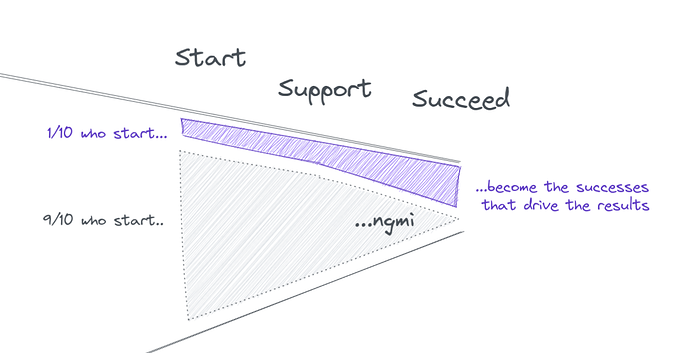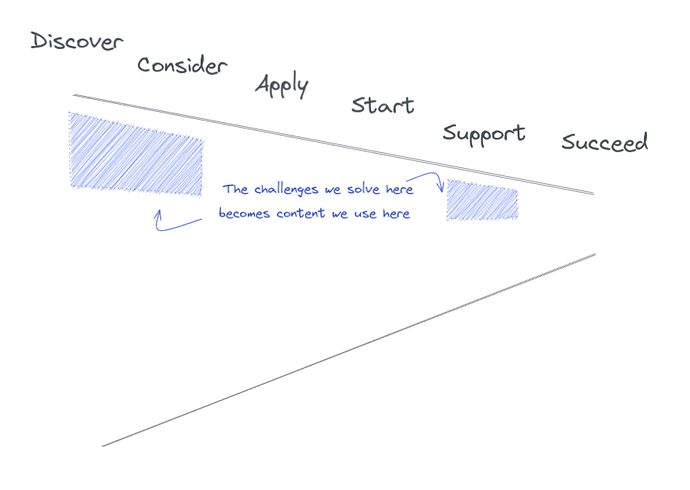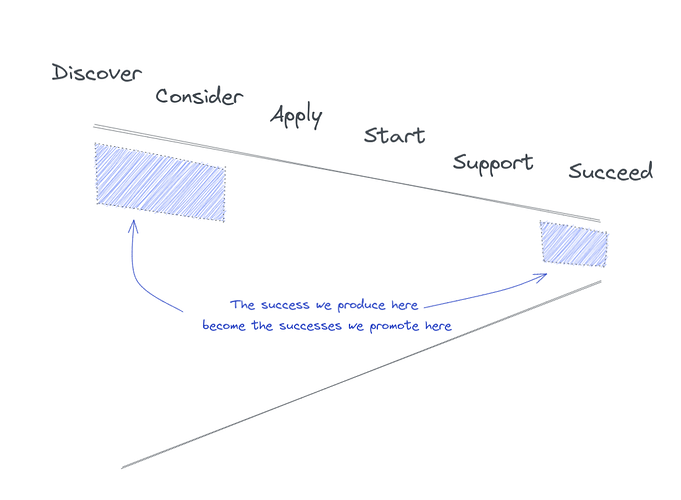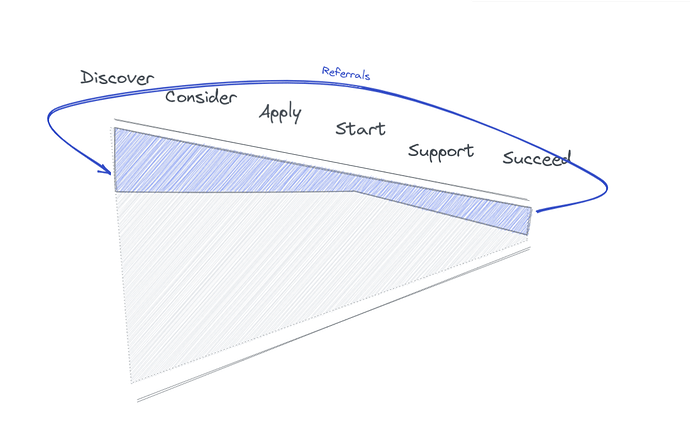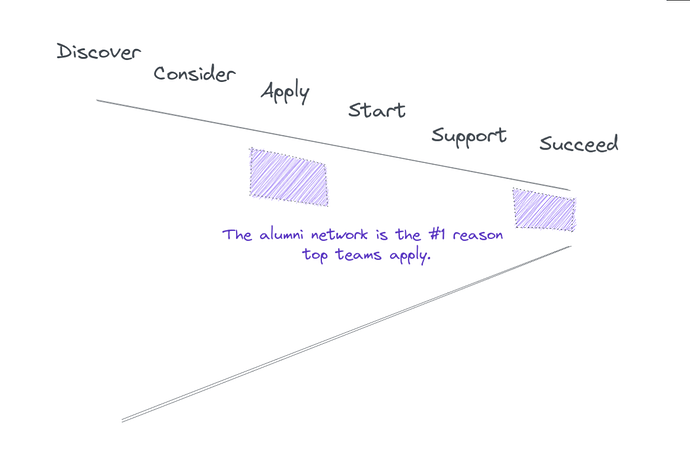Quick intro: Hi, I’m Sal. Over the past 10 years, I’ve build peer learning, peer support and startup education programs for some of the world’s top-rate universities and startup accelerators. (More here: What is Source Institute? - Source Institute )
I’m sharing the following for your input and advice.
I’ve been helping out a bit around the EcoDAO, and I’d like to get started on our project support program. It’s something I feel is urgent if we want Polygon’s ecosystem to attract the best projects. And I am proposing to take the responsibility for it with a small dedicated squad if anyone wants to join.
I’d expect positive effects across the EcoDAO:
- A better quality feed of grant applicants, which enables us to raise the bar on automatic/early rejections.
- Attracting high quality - and importantly, relevant - talent into the EcoDAO
- Fast-forwarding decentralising by enabling decentralised support from the start.
To explain why I think we need to focus on project support now, I’d like to draw from experience with startup accelerators, which have a similar dynamic of funding and support.
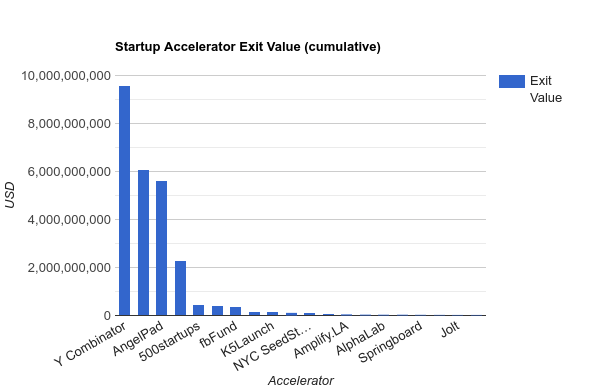
Source: seed-db.com
This follows a power law distribution: the top 3-5 programs end up with all the high-calibre alumni, thus the best applicants, thus the best portfolios. The rest end up having a hard time and constant uphill battle.
Why is this?
Firstly, when you look at value-added investment programs like this as a funnel, the successes usually follow a blockbuster distribution. One out of ten investments produce the outsized returns that drive the portfolio valuation upwards. The rest fail fast (but the people go on to try again with new projects).
So the Pareto Principle applies - focus on the blockbusters.
Network effects
From there, we see there are network effects that produce compounding results.
The blockbuster projects tend to have their own class of challenges.
This is our linchpin, because if it directs our educational content and mentoring selection, it cascades to more relevant marketing material and social media recommendations for that desired target group. Ultimately the alumni attract and recommend like-minded people. (People who have already learned and oriented from the most successful projects.)
When we zoom out to see how people discover the program and apply, we also see a unique funnel for the higher-quality applications. So building resources around those attract similarly high-calibre projects. By serving their needs, we have the opportunity to create content and relationships that attract better and better applications.
When the blockbusters start to take off, the people around them tend to be similarly skilled, and ask them for guidance. Effectively, creating a referral loop that pushes the funnel towards higher and higher quality applicants.
This produces compounding effects, which is what leads to the long-term power-law distribution above.
In the short term, this involves connecting and drawing in meaningful support. We can do this using the Core Team’s connections, and also by drawing in hand-picked talent from Polygon to the EcoDAO that is relevant to specific challenges and directly serves to help the potential blockbusters break out.
In the medium term, the alumni group brings this value. They themselves are the needed support for the incoming projects. (And in our case, likely also the investors.)
Differences in the blockchain landscape
Polygon also has different goals - getting great projects on the Polygon network, and not necessarily holding equity positions in them.
Blockchain projects and communities are far less exclusive and more porous, allowing for more overlap between such networks. This indicates that partnering or combining support resources with other programs may serve us well too. Maybe this won’t be so winner-take-all.
From a practical perspective though, individual startup projects have to decide which platforms to start with. Their resources are limited, so there is an element of competition here.
So with that in mind, the nature of support we deliver should be disproportionately skewed to who be believe will be the blockbuster successes, and we should aim to make it so good, it’s a “no-brainer” for them to choose Polygon.
At Polygon EcoDAO
Drawing on this virtuous circle that the top 5 accelerators (and many in the top 20) have applied, I want to start a virtuous circle of exposing the challenges the top EcoDAO projects, and directing our support resources to them.
The same thinking cascades as follows:
- Which projects actually get engaged users on Polygon?
- What are their challenges?
- Disproportionately focus on mobilising our support network around those.
- Create educational and marketing material based on those support interactions. (Share advice and practices based on those challenges.)
In a nutshell, focus our limited resources where they are most effective.
This approach also allows us to start small, working with say the top 5 projects, then expanding from there.
This is closely connected to the granting process, so I’d like to write up some recommendations for that that will serve the same goal. But only if requested and I feel I’m included. For now, these can stay independent.
How will the program look?
- Cohort-based. Teams are onboarded in groups, creating a peer support culture from the start, and also operational efficiencies. There is a resemblance to token-gated communities which makes sense to draw on - small cohorts of 10-20 teams tend to support each other more.
- Peer support. A large number of challenges can be solved with support emerging from within the peer group itself. So we provide an environment to facilitate that.
- Responsive. Each team has a personal relationship with a facilitator, who understands their challenges and connect them to meaningful support. The program isn’t designed with pre-determined content, but rather to solicit their needs and respond to them quickly. This is done using facilitated peer learning formats with other project members or invited experts. (A big advantage is experts are not required to prepare anything, just show up, which makes them far more likely to participate.)
Resourcing
As far as knowledge resources go, we’ll do best if everyone is willing to look at a curated list of requests, and make quick intros if they can. This would maybe take 5-10 minutes every few days if you’d like to help as a Connector.
In terms of operations, this is something that can easily become several f/t roles in a standard accelerator. However, there are several reasons we can do more with less here:
- Many of the typical accelerator functions are already running in the EcoDAO: marketing, grant review, etc.
- Many of the support functions are worth trying with a decentralised/DAO approach, effectively fast-forwarding to alumni-based peer support.
I used to advise and run such programs professionally (a few of the top 5 above were my clients) and have some time to start and manage a small program here. (My current focus is to research and launch a new kind of blockchain primitive as a Gitcoin Kernel Fellow, but this has many synergies with such a support program in Polygon EcoDAO.)
That said, we’re in discussion about if this fits as an employment role with the EcoDAO, Polygon and/or as a funded project.
I’d like to set this up to directly become a decentralised, self-sustaining operation within the EcoDAO, and reassess after a few months.
Accordance check
I’d like to start an accordance dialogue about this here, with the goal of surfacing any major snags anyone might see, and ideally moulding this into something that has consensus or near-consensus with everyone directly affected.
So could you please first respond with one of the following?
![]() in favour of the proposal
in favour of the proposal
![]() neutral, supporting the decision of the group
neutral, supporting the decision of the group
![]() reject the proposal, or want to raise a significant flaw that affects you for discussion
reject the proposal, or want to raise a significant flaw that affects you for discussion
Those who ![]() are invited to explain how this affects you and what would need to change for you to be in accord. If there is any dissent, we will try to modify the proposal so it addresses those concerns.
are invited to explain how this affects you and what would need to change for you to be in accord. If there is any dissent, we will try to modify the proposal so it addresses those concerns.
